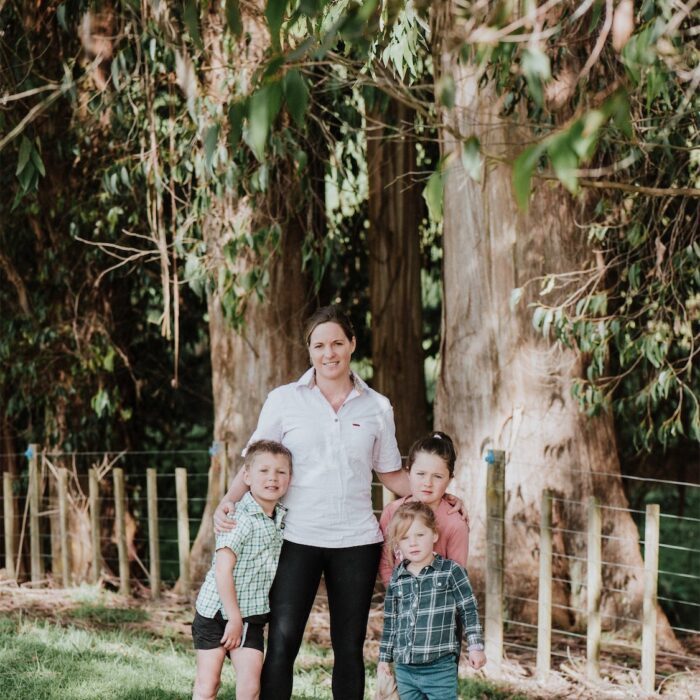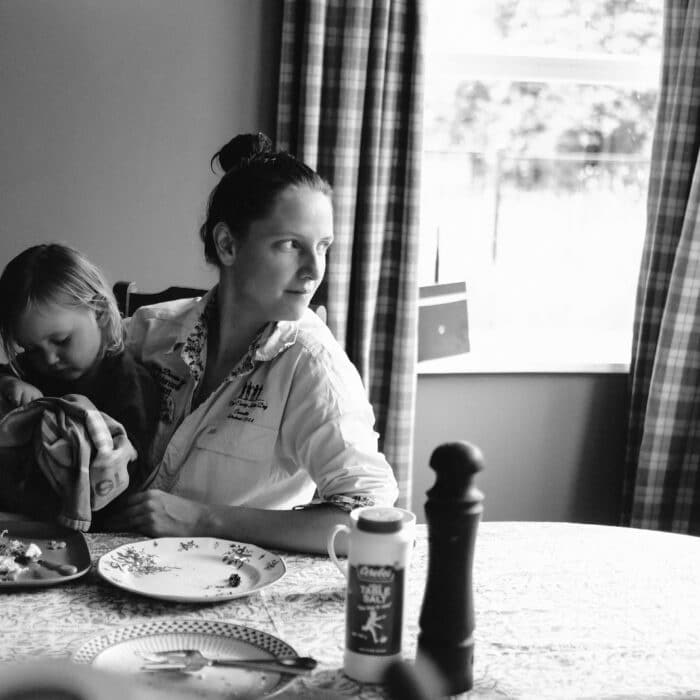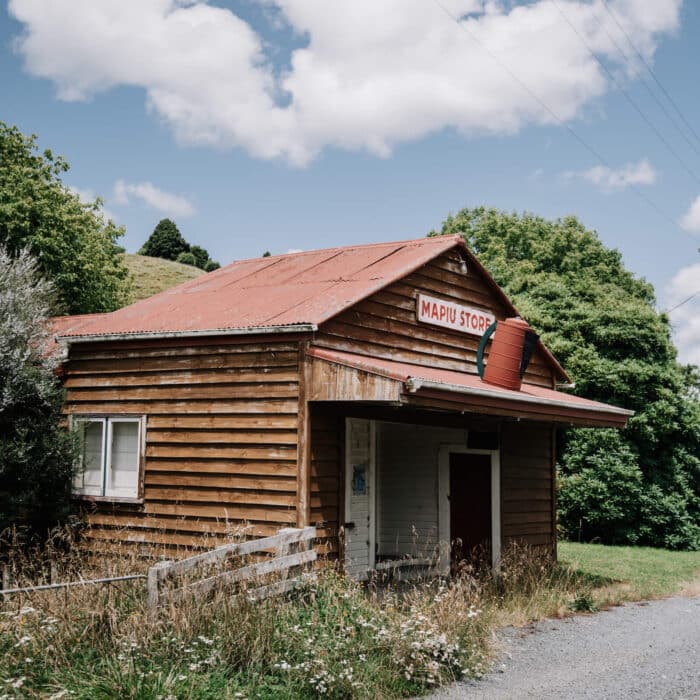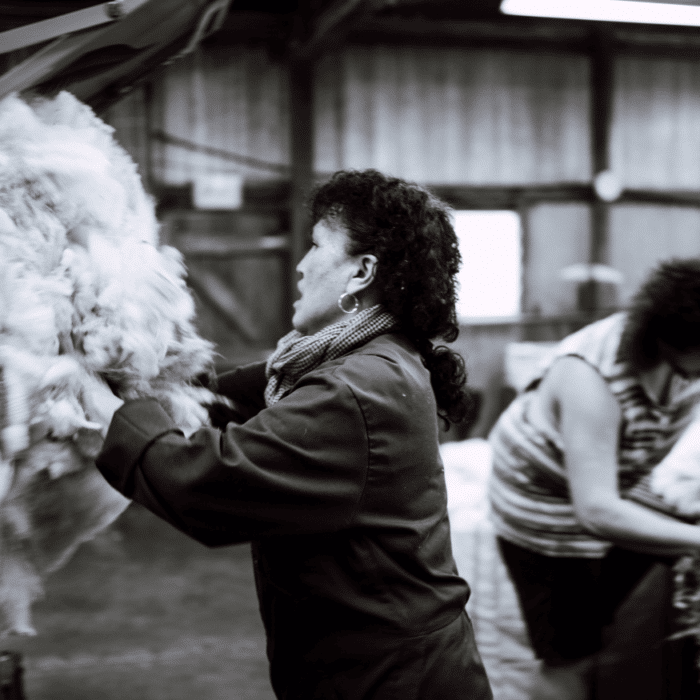
The thing I enjoy most is getting out on the farm with the dogs and shifting stock around. Yesterday, I spent all day lamb marking. I organised all the morning tea and lunch, and I’ll be out all day today – I’ll vaccinate, ear mark or castrate, but I don’t pick up lambs all day like I would have done when I was younger.
My husband, David, is from Marlborough, and we lived up there on his family farm for six years when we first married. I had three boys under four in Marlborough when my mother died suddenly from cancer, which motivated me to come home. In 2001, we bought a farm in Maniototo with my father and sister. In the early years, I worked on the farm full time, but once I started all the governance roles I was away more so we had to employ other people. I still work on the farm when I’m home, but I’m more choosey about the jobs I do.
We’ve farmed with my sister and brother-in-law for twenty years now, so it’s a real family business. People often ask me how we’ve managed to stay working together for so long when so many family farming businesses split up. My father was a great support and mentor to both families, and when he died suddenly in 2008 we really had to dig deep and up our game, with formal meetings and an independent chair. It’s really about communication, making time to meet regularly and involving your external advisors to act as referees when you need them. We have always understood the reasons and benefits of working together.
In 2010, I attended the inaugural Escalator programme at Agri-Women’s Development Trust. Roll forward to 2021, and Escalator graduates are in leadership positions all around New Zealand. I’ve also been a facilitator for their Understanding Your Farming Business programme – which nearly 3,000 women from all over New Zealand took part in.
We went all over New Zealand talking to farming women and I loved it. It was about helping them realise they weren’t just farmers’ wives. That they had skills they could bring to the table and were critical farming partners who could be involved in the strategic decisions and planning of their farm business. I taught the women how to put their aspirations into words and write a farm business plan with five-year goals. There’s been lots of evaluation of the Understanding Your Farming Business programme, and it’s been shown that the material we delivered has been transformational for the agri-sector.
Often, I am the only woman on the boards and the things I’ve been involved with. Even when I was at Lincoln University there were only ten women but over seventy men in my class, so I’m used to it. I’m the third woman ever to be elected as director to Alliance Group in its sixty-plus years of history. My governance roles give me a different perspective on Covid-19, as we are insulated to some degree on farm. I can see what’s happening in other industries and how difficult things are across different sectors.
For me, it’s about caring – I always try to think about the people involved and ask, “How are they being impacted?” I think some men find it hard to articulate or ask those kinds of questions. For example, if I’m on a board meeting call for Farmlands, I will often ask “How are the staff going?”, “How are they coping?” I think of my little local branch of Farmlands – they’ve had pregnancies, people off sick, so it adds extra pressure for the ones that are left to keep things running. I think people would describe me as a caring director who works hard. I like to leave organisations better for having been a part of them, whether it’s a farm, a school or a large corporation.
I don’t have a lot of spare time these days but when I do I like to catch up with my sons, Jordan, 25; Peter, 23; and Robert, 22. Right now, I’m focussed on trying to make the farm financially and environmentally sustainable, and we’ve spent the past five years developing irrigation as well as a large storage dam. We want to be able to give our boys the opportunity to have a corporate career, but also the opportunity to farm if they wish.
This story appeared in the Raumati Summer 2021/22 Edition of Shepherdess.
Related Stories
The Power of Planning
Mum-of-three Janelle Downs, 34, packs her days with raising a family, farming, teaching and community work from her farm near Strathmore in Taranaki.
Māpiu
Kim lives with her husband David on his family farm in Māpiu, where she has planted roots and been enveloped by the town’s tight-knit community.
Esther Kidd
The twenty-five-year veteran and Leading Charge Hand with Spain and Smith Shearing Contractors lays out what it takes to get through a day, and what keeps her going.
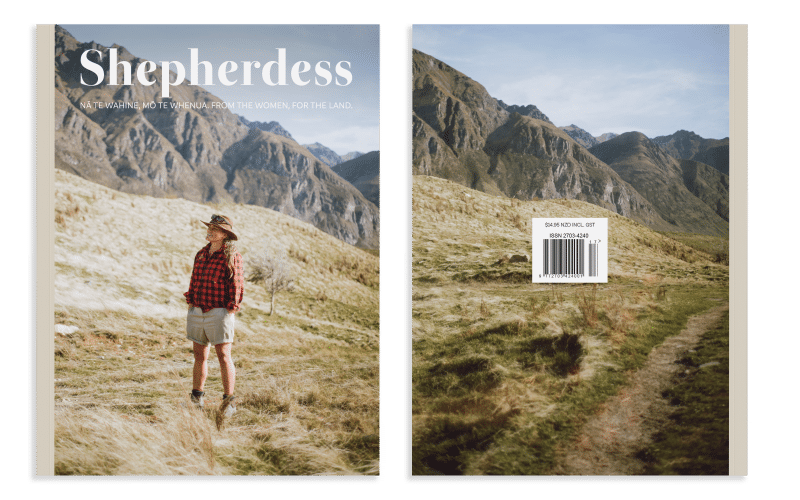
Out Now
Seventeenth Edition
Our beautiful Ngahuru Autumn 2024 Edition is out now!
